Relatives of people missing since 2014 still do not know what happened to them
The cases of the Ukrainians gone missing and abducted before February 24, 2022, were out of the focus of the attention of the state and law enforcement bodies after the beginning of the full-scale invasion. Nevertheless, for the ninth year, the families of such people have been addressing the authorities to find out where their relatives are and what the state is doing to free them.
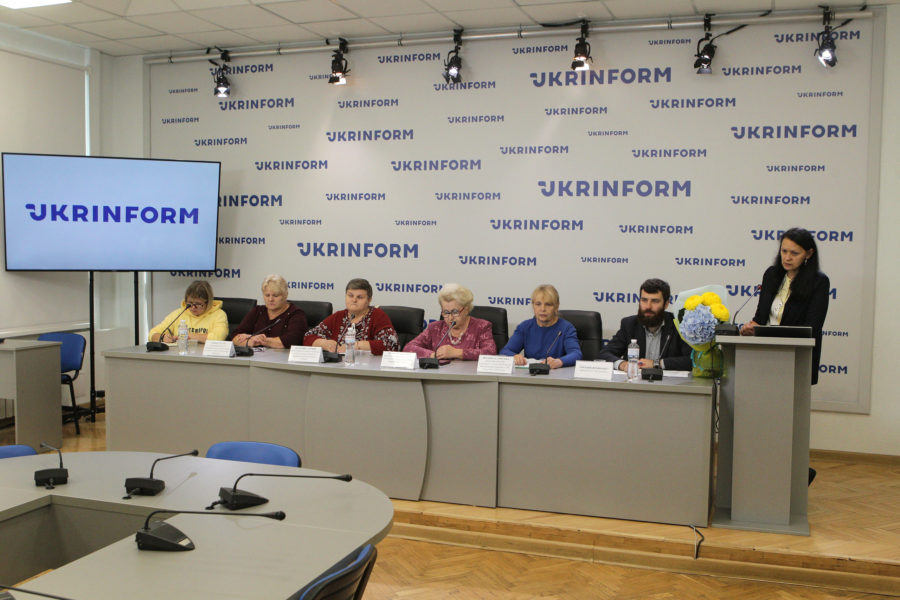 Photo credit: Ukrinform
Photo credit: UkrinformThe issue was discussed during the press conference “How Ukraine is searching for defenders gone missing during Anti-Terrorist Operation” organized by the members of Ukraine. 5AM Coalition – Media Initiative for Human Rights, Human Rights Centre ZMINA, CrimeaSOS – at the Ukrinform news agency on September 16.
There is currently no reliable data on how many civilians and military personnel went missing or were abducted between 2014 and February 24, 2022. According to the files of the Security Service of Ukraine released in 2020, 79 service members went missing. The International Committee of the Red Cross reveals much bigger numbers, claiming at least 750 people, half of whom are military personnel.
Due to the lack of accounting, a lot of problems arise for families who are unaware of the fate of their loved ones. The legislation amendments, which could become the foundation of support for such families and get things moving off the ground, were adopted in 2018. However, the law does not work practically.
“On August 24, 2014, on Independence Day, my son was ambushed near Kuteinikove, Donetsk region. Later I found out that he was held captive in Snizhne. His location is currently unknown, he is missing. For eight years we have heard that there is no access to the occupied territories to search for our children. But we know that no one dealt with that and no witnesses were interviewed. The status of such people is simply changed to the status of dead, not even killed. A military unit submitted files to the court, according to which my son should be declared dead, and this is not supported by documents or any valid reasons, and it is done through a civil court. One gets the impression that it is easier to bury the heroes who were the first to defend Ukraine in 2014,” says Liudmyla Svirska, the mother of Volodymyr Svirsky, a captive whose whereabouts have not been specified, a member of the 40th “Kryvbas” battalion.
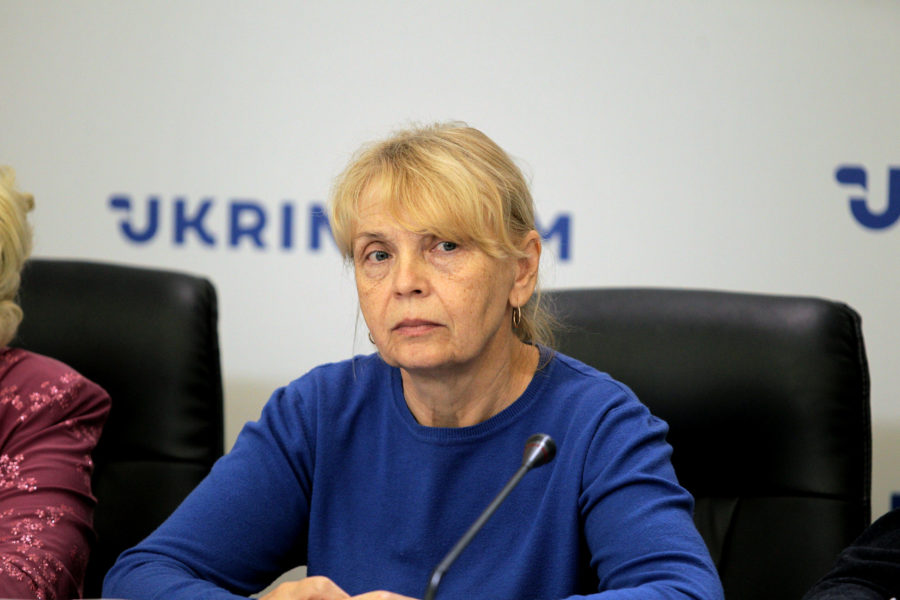 Liudmyla Svirska. Photo credit: Ukrinform
Liudmyla Svirska. Photo credit: UkrinformKateryna Khomiak, the mother of the missing Dmytro Khomiak and Volodymyr Khomiak from the “Aydar” volunteer battalion, found herself in a similar situation. At one point, the woman was offered to identify the bodies of the men trying to pass them off as her sons.
“On September 5, 2014, my sons went missing. I asked whether an investigation was conducted in the battalion, searched in different directions, attracted volunteers. In 2018, the battalion filed a lawsuit to declare the sons killed. The trial in the case of the elder son lasted one and a half years, the younger son – a little less. They are currently considered missing. In 2015, the investigation suggested identifying the bodies of my sons. But they were of the wrong body type and belonged to people in their 30s, while my sons were 22 and 24 at the time. I’m taking not puppies or kittens, but my children, so how could they do that? One of the bodies was later identified and reburied. If a mother resists, there is a good reason, but they don’t listen to it. But we will go to the end.”
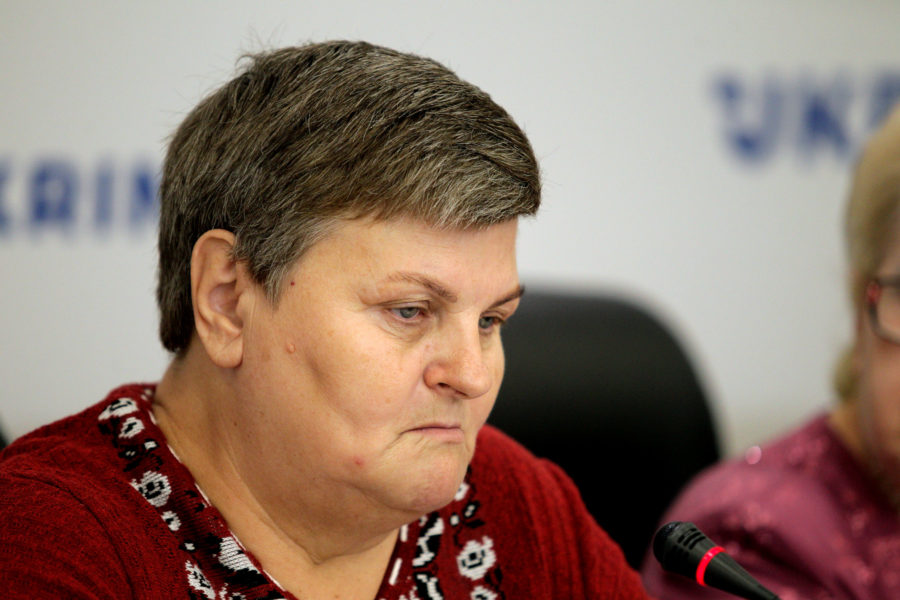 Kateryna Khomiak. Photo credit: Ukrinform
Kateryna Khomiak. Photo credit: UkrinformThere is a legislative framework that could at least partially address the issue of missing persons. However, there are gaps in the implementation of the law, notes Alyona Lunyova, advocacy director at Human Rights Centre ZMINA:
“This concerns guarantees for unemployable relatives of those missing. They are entitled to a pension for the lost breadwinner. Many people do not receive this help and do not know that it should be paid. Also, the search for someone who went missing disappeared, died or killed cannot be stopped until the location of the person or body is established.”
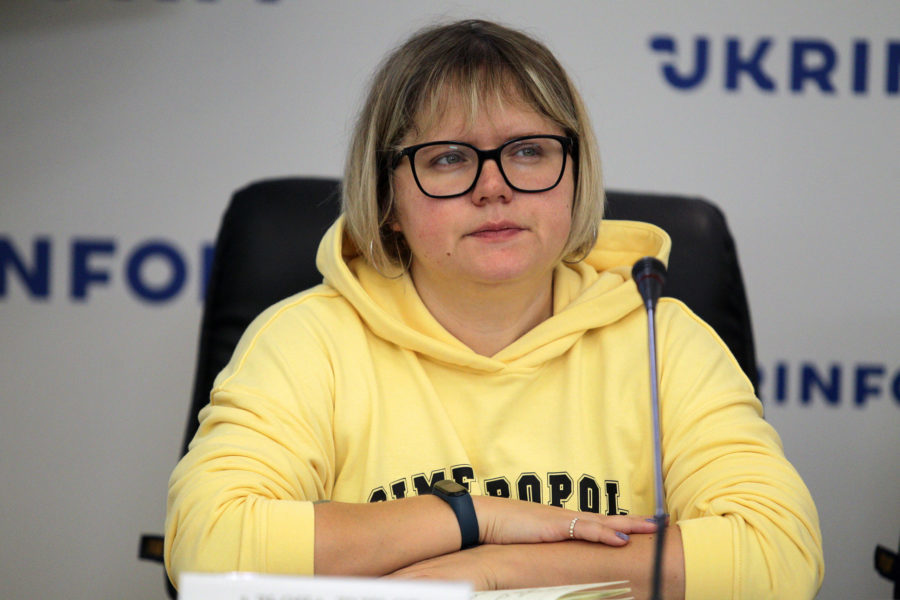 Alyona Lunyova. Photo credit: Ukrinform
Alyona Lunyova. Photo credit: UkrinformThe registry of missing persons, which should be taken care of by the Ministry of Internal Affairs, has not yet been launched although it was supposed to be operational since April, Lunyova adds. By law, information from organizations and relatives may be included in this database.
“We hope that this register will be launched and social guarantees will also be implemented in the near future. All necessary amendments have already been adopted. And the base and the tools we have are quite enough to take care of the relatives of those missing. It is important that those who have gone missing since 2014 are not lost but are included in the register and the search does not stop,” says the human rights activist.
The situation of enforced disappearances in occupied Crimea is of particular concern. Officially, 44 people are considered missing on the peninsula since the beginning of the so-called Russian spring in 2014, but this number may be much higher. The reason is that relatives of missing persons and witnesses of enforced disappearances prefer to remain silent for their safety.
“The cases of intimidation of relatives or witnesses of disappearances were recorded. The occupiers impose an alternative point of view, not considering the involvement of security forces in the disappearances. They say that relatives allegedly went to fight in Syria or that the disappearance was linked to a commercial conflict. In 2020, we did research and collected a lot of facts that refute these stories,” says Yevhenii Yaroshenko, analyst at NGO “CrimeaSOS”.
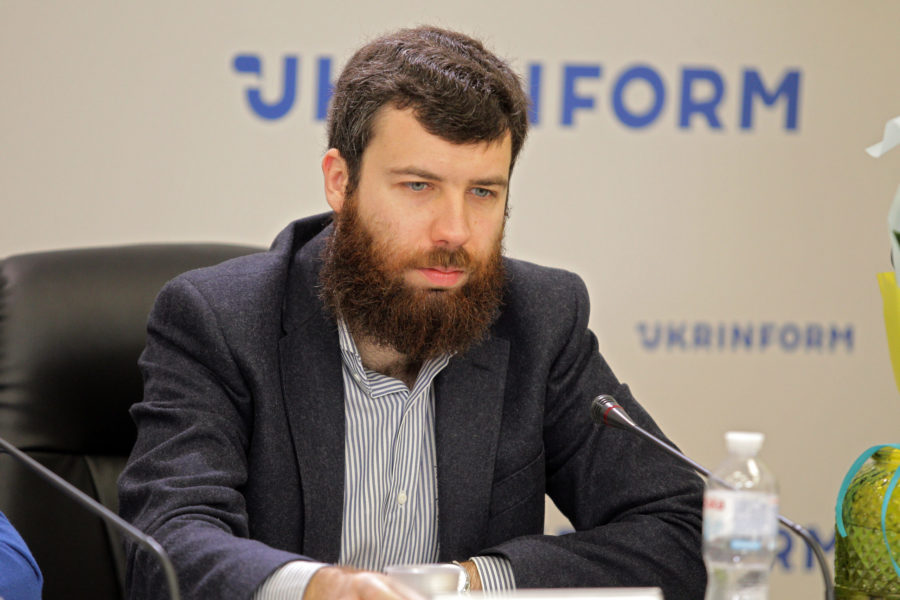 Yevhenii Yaroshenko. Photo credit: Ukrinform
Yevhenii Yaroshenko. Photo credit: UkrinformAccording to him, at the beginning of this year, amendments to the law on the legal status of missing persons were adopted, and the document extended the status of missing persons to the territory of Crimea, not only the area of ATO/JFO. This enables relatives to rely on state support.
“But we must also talk about psychological rehabilitation. Ukraine and other countries should impose sanctions on law enforcement officials who block the investigation into disappearances. And those involved in crimes must be prosecuted through legal mechanisms,” Yaroshenko emphasizes.
Watch the live stream video here(In Ukrainian).
If you have found a spelling error, please, notify us by selecting that text and pressing Ctrl+Enter.















